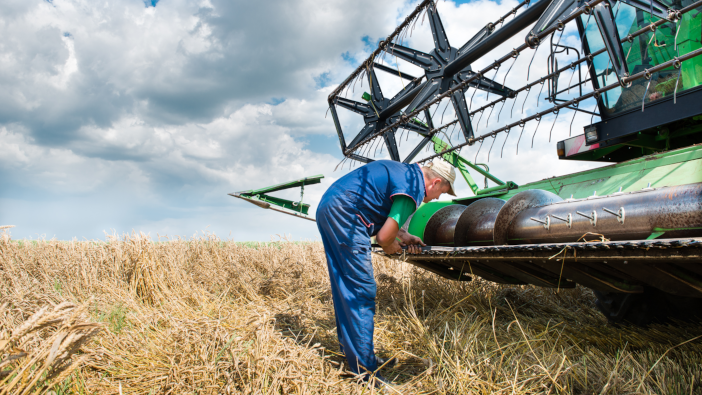Acres Insurance is recommending a three-pronged approach to minimising risks this harvest. The company stated that while machinery checks will help to reduce risk and disruption, farmers should also adopt a wider approach to contingency planning, considering the difficulties that can occur during a catchy season.
“The first area to always consider is your standard harvest machinery tests,” said Nigel Wellings, director of Acres Insurance Brokers. “Preparing, cleaning, checking and testing machinery is key, most apparently with machinery such as combine harvesters, but also consider areas such as storage machinery maintenance.
“With the catchy harvest we are facing so far this year, many will be tempted to push machinery to the limits in the windows of good weather, but this is where you can encounter issues,” he added. “And when combining at 18 or 19% moisture, this can lead to belt slippage or belts wearing out sooner, which you should be aware of.”
Mr Wellings also advised that the cost of replacement machines should be factored into insurance policies, in case of major failures. This type of cover should be provided under the Business Interruption section.
“You may be looking at a cost of upwards of £70,000 to hire a high-capacity combine to cover for the remainder of your harvest period,” he said.
“The written-off machine may be comprehensively insured on an agricultural vehicle policy, but while insurers will pay out the market value of that machine, maybe within three to four weeks, they will not cover for the hire of a replacement.
“If cover is arranged properly on the Business Interruption section, you should be able to claim for the cost of hire for a replacement machine, to get the harvest done.”

Personal safety
The most important concern should be the safety of staff and the general public. Additional season staff and contractors on-site during harvest multiplies the risk of accident or injury.
“With personal injury awards getting higher over the last decade, it is important to obtain the right public and employers liability cover,” said Mr Wellings. “While a £10 million indemnity is an absolute minimum, we generally encourage £20 million, with claim cost awards often now in excess of £10 million, particularly if more than one person is injured and multiple claimants are seeking redress from the same pot.”
It’s also crucial to have health and safety policies in place and to ensure that all staff, including seasonal workers and volunteers, have seen a copy of the policy or received a briefing.
“One area that is often overlooked is ensuring staff operating machinery and agricultural vehicles hold the correct licences and qualifications,” continued Mr Wellings.
“For example, not all driving qualifications are equal. In the UK, when you pass your car driving test and acquire a Category B licence, you are automatically entitled to a Category F licence to drive a tractor.
“This is not always the case throughout Europe, so if employing harvesting staff from European countries, it is important not to assume anything. Check driving licences, as well of course as the right to work in the UK. Failure to do so could mean any insurance cover would be void.”
Different weight and speed restrictions may also apply to some machines. Tracked vehicles require a Category H licence, but this requirement can be missed.
“Finally, make sure any existing motoring convictions by any employees operating agricultural vehicles or machinery are listed on insurance policies,” said Mr Wellings.
The right cover
Mr Wellings concluded by saying: “The harvest season brings with it multiple potential risks and it is important to make sure you have not only taken all practical measures to minimise these risks, but that you have the right insurance cover in place in the event of an accident, interruption or injury.
“Speak to your insurance broker and make sure you know what your policies cover, or run the risk of leaving yourself exposed to taking a serious hit on your harvest.”
For more information go to www.acresinsurance.co.uk


